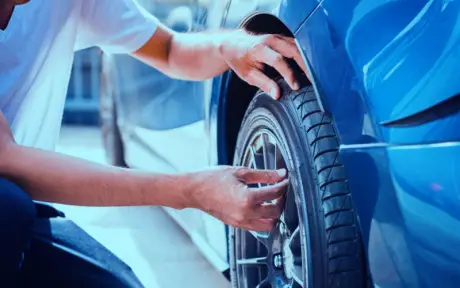
Any car owner knows that there are many reasons to keep the tires inflated according to the index. First of all, it’s required by law, second, it is going to keep you safe on longer journeys. Third, it helps you save fuel.
Fourth, proper tire inflation will elongate the life span of car tires and provide prevention against tire damage like tire cupping.
At this moment, you might be thinking about going with either regular air for inflation or nitrogen tire inflation. In this article, we will discuss the benefits of nitrogen tire inflation compared to regular air.
What are the benefits of nitrogen tire inflation?
First, nitrogen is going to prevent tire cupping like a rockstar. Second, the use of nitrogen for inflating car tires has been proved to have an edge over normal air. Here’s why.
Nitrogen is entirely inert. In simple words, there's no way your tires are going to catch flames under hot conditions. This is why professional race car manufacturing companies are using it.
Studies show that dry nitrogen can also be used in tire units along with regular air. Dry nitrogen reduces tire pressure variations through multiple mechanisms.
How nitrogen prevents tire cupping
The terms ‘tire cupping' describes the phenomenon when the car keeps on jumping throughout the road without any apparent visible explanation.
In reality, tire cupping is caused when tires are worn out because of uneven tire pressure. Tire cupping is the terminal stage of tire wearing, which is only reported when the tension across all four tires is kept unstable for a very long time.
Why should you use nitrogen to prevent tire cupping when even regular air contains 78% nitrogen? Pure nitrogen is known for maintaining the pressure across an inflatable object such as a tire, no matter how harsh the environmental conditions are.
Can tire cupping cause long-term damage?
Yes, tire cupping can indeed cause long-term damage to your tires. But as much as tire cupping is common these days, preventing it is also relatively straightforward. All you need to do is make sure that the pressure across all four tires of your car is even.
The best way to ensure this is to use nitrogen for inflating tires instead of using regular air. Nitrogen is known for its pressure retaining properties. Also, do check for any punctures of loose tube placement ends.
Final Note
The whole idea of using nitrogen for inflating tires instead of going with regular air is relatively new. Instead of compressed air for filling car tires, nitrogen is promoted as tire gas or tire inflation gas under various trade names by tire dealers. Correspondingly filled tires are marked with colored valve caps.
Car safety authorities claim that using Nitrogen to inflate car tires reduces the overall damage during an explosive accident. Nitrogen is entirely inert and inflammable. On the other hand, using regular air for tire inflation is now known for promoting explosive damage in an accident instead of controlling it.
Same articles

Understanding Vehicle Inspection and Verification Services: Why They Matter for Every Driver
GuidesVehicle inspection and verification services are an essential but often overlooked part of keeping roads safe and cars legally compliant. Most people only think about inspections when it’s...
KLIFEX Brand Overview: High-Quality Automotive Repair Kits for Affordable Repairs
GuidesThe automotive aftermarket has long needed solutions that combine reliability, durability, and affordability. Many car enthusiasts and services are looking for a way...
Fast, Reliable Vehicle Emissions & Inspection Services Made Simple
GuidesFast, reliable emissions and inspection services are essential for keeping vehicles road-ready, compliant with environmental regulations, and safe for daily driving. If you’re looking for quick...

